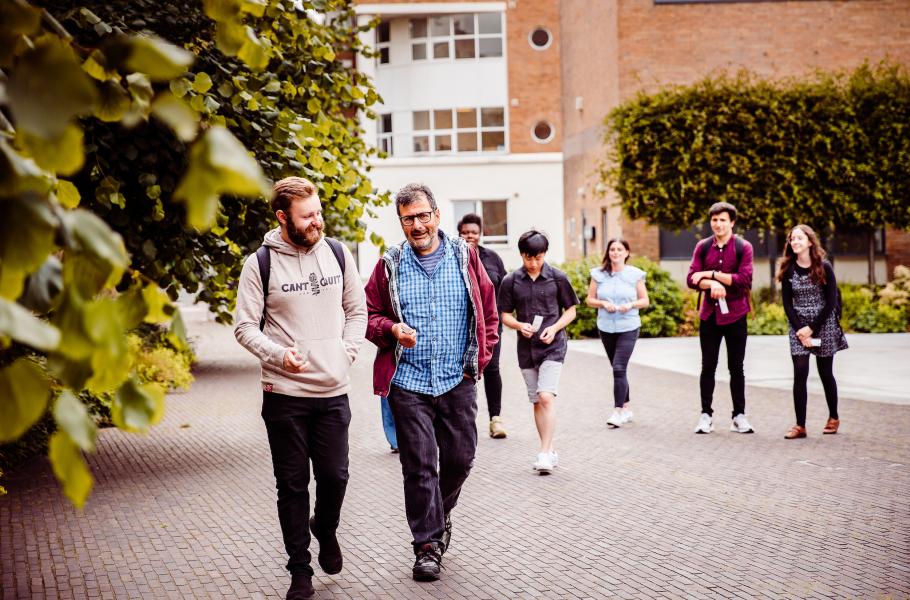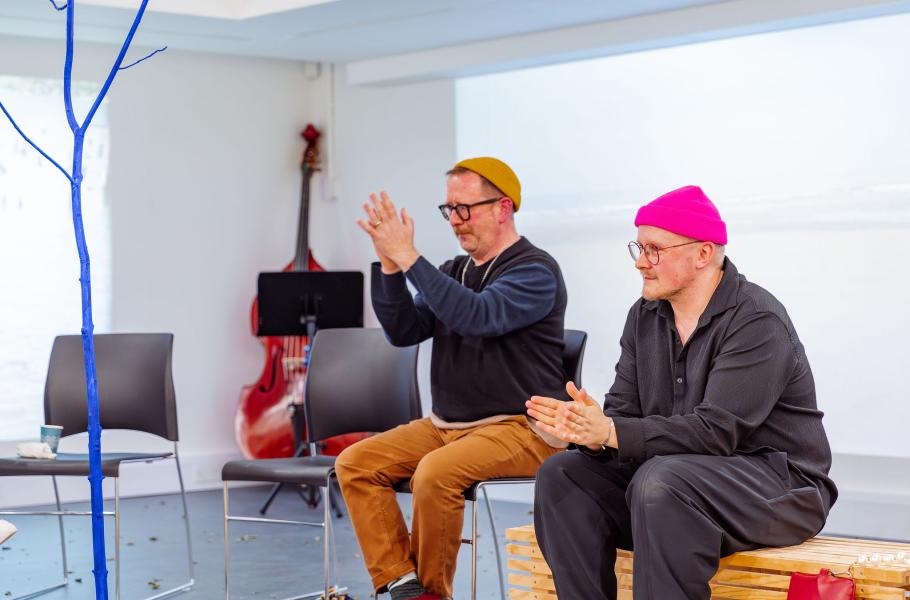Art in times of Emergency
Jocelyn Cunningham
It is very hard not to despair right now about what we are collectively doing to planet earth. Clearly there has been a huge failure from world leaders to in any way adequately address the environmental emergency at COP'26. But where does this leave us other than with the terrifying sense of powerlessness and lack of agency? Of course, we will ramp up our personal acts of behaviour change and some of us will continue with unrelenting protests, letters to our political representatives, and more direct actions to change hearts and minds. The arts can offer experiences that reframe the debate, enable connections and of course, inform and provoke. Here at Lancaster Arts, we have had a few varied examples of this, each in different artforms over the last month.
We were very lucky to be able to host renowned artist, Michael Pinsky's The Pod of the Future at the new Health Innovation One building at the Lancaster University campus, completing the Lancaster Festival. Michael Pinksy has been commissioned by many COPs to create work which illustrates our futures if we don't act now and I urge you to have a look at his beautiful and thought provoking creations. Five Pollution Pods were installed in a Glasgow hospital during COP'26 and here at the Health Campus, we hosted a pod which simulated the air we can expect to have in 2040. We were lucky to have many children experience the pod alongside their families and their responses illustrate the impact of direct experiences:
A very frightening experience. I went into the pod with my two children. I found it very moving and upsetting that this could well be the life for them. A simple concept which brings home a terrible possibility.
Felt nostalgic. It was an experience as I'm from Syria. There's a weird taste on my tongue.
Interesting experience. Might really influence people's perceptions of the problem as a physical experience. Forms a more lasting memory in comparison to reading an article. So it is very important to show people and motivate them to take action.
The pod was accompanied by a performance by cellist, Maja Bugge who composed a stunning music piece in response to the air of the future which you can hear here.
On the same night, we hosted an event, How do we breathe? that was framed by questions that looked at air pollution and climate justice. Again, there were children and families taking part and the discussion focussed upon the overlaps of the pandemic and air quality, the importance of recognising the systemic nature of the problem and how stories and new narratives can help us all feel more empowered and able to address the challenges together. Here are a few of the questions that came out of this event (from children, students and academics):
Do things have to be the way they are?
How can we create policies that work for the future and. minimise the injustices and inequities that we inadvertently or sometimes intentionally create?
If you had the power to change structures (like transport) which would it be? What would you change that could make a difference to air pollution?
What do we do now to stop the next pandemic? What else is out there brewing (i.e. cutting down the rainforest) that will cause more disease?
In our Nuffield Theatre, we hosted a new company called Ergon Theatre who performed The Wicked Problem, an interactive performance that challenged audience members to think critically about the impact of climate breakdown on us all. The piece is set in the future, in a Britain where the system has dramatically changed, due to the climate crisis and life has become very restricted. The question at the heart of the piece is ‘What would you put first, the planet or your family?’. The audience's role was to be the jury in a case where someone has broken a climate law and burnt coal to provide energy to their struggling community. After hearing from people affected by the climate crisis all over the world, the audience were tasked with deciding whether the individual in question should be punished or not (guilty or not guilty). So far, after 5 performances and over 400 votes, the decision is not guilty - though only by 5%. The narrow margin between guilty and not guilty shows how difficult and complex the conversation around the climate crisis is when it comes to equity and climate justice. Ergon Theatre also have a couple of audio pieces created over lockdown about climate change and futures which are well worth checking out: www.ergontheatre.co.uk/sound.
So many of the artists we have worked with have looked at climate change and climate justice such as Rebecca Chesney, who has a piece of work in our current exhibition, Shifting Currents, on until 14 December. We are fortunate to have remarkable climate scientists working at the university in the Lancaster Environment Centre and Green Lancaster, forging new projects at the Eco Hub with volunteers of students and anyone who wants to be involved. Alison Cahn, a journalist and film maker who works at the Environment Centre writes on her experiences at COP's26 here. With these rich resources on our doorstep, Lancaster Arts is well positioned to be looking at a broad range of commissions and work that address the complex aspects of the climate emergency and enable us to reimagine our futures through the arts.
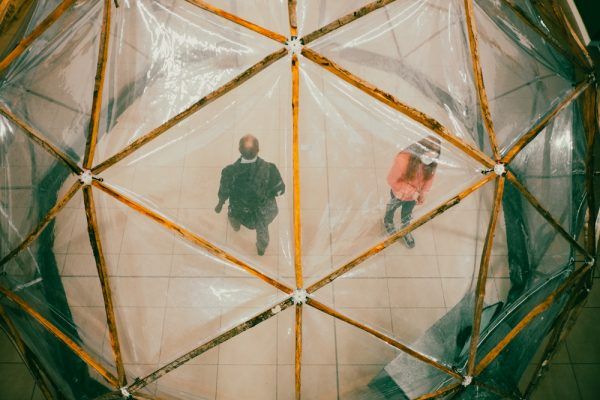
The Pollution Pod 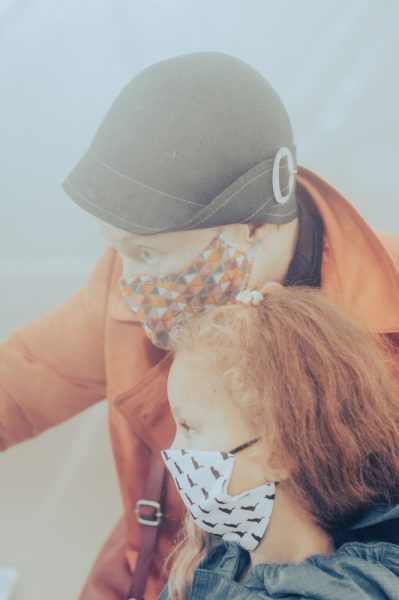
Inside the Pod 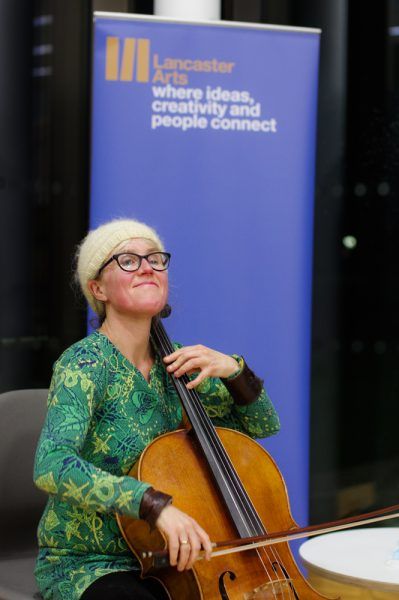
Maja Bugge


